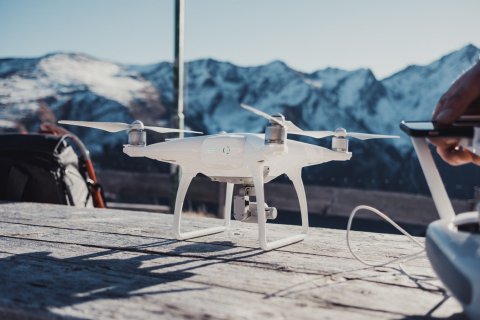The Intimacies of Remote Warfare

In recent years, Western states have increasingly resorted to remote warfare to govern threats at a distance across the Middle East and Africa, often outside conventional warzones. Remote warfare is a form of military intervention characterised by a shift away from boots on the ground and towards light-footprint military operations.
Remote warfare generally involves combining drone and precision strikes in the air with special operation forces, private contractors and military training teams on the ground. Although remote warfare necessarily involves distancing, it also requires intimate relations through military-to-military training missions, the formation of political alliances, and establishment of bases, compounds and airfields.
Political transparency
While often successful in eliminating enemy combatants, practices of remote warfare carry a number of distinct consequences and wider repercussions. A war without soldiers is a war without body bags, meaning this physical withdrawal may entail an evasion of public oversight and scrutiny. The shadowy practices of remote warfare and the oft-repeated claim that interventions are ‘precise and clean’ means that when civilian casualties are sustained, they are less likely to be made public. And when they are made public, a lack of transparency on who is involved and in what capacity blurs any debate on responsibility and accountability.

This is problematic. Without assessing how creating security for some may heighten insecurity for others, we risk misjudging the interconnectedness of today’s war zones. This interconnectedness may lead not only to clusters of conflict cross-infecting and exacerbating each other, but could also augment the risk of blowback. In our digital age, it is an illusion to think that the atrocities of war will remain unseen.
The Intimacies of Remote Warfare
The Intimacies of Remote Warfare was established in response to this need for an independent, evidence-based expert field which is able to inform the public about the impacts and intimate realities of the remote wars waged in their names.
Beginning with an eponymous conference at Utrecht University in December 2017, The Intimacies of Remote Warfare sought to rectify the lack of evidence on the production, dynamics and impacts of remote warfare. This conference facilitated an early exchange of ideas, evidence and data-gathering strategies between academics, journalists, lawyers, politicians and civil society representatives.
From this first conference, with the support of the Centre for Global Challenges, Dr. Lauren Gould and Prof. Dr. Jolle Demmers formally established The Intimacies of Remote Warfare as a research project. Since then, it has produced further research on the topic and collaborated closely with both civil society and governmental actors.
Recently, the Intimacies of Remote Warfare has worked with the Dutch Ministry of Defence to devise a roadmap for improving its civilian harm reporting procedures. It has also collaborated with societal partners such as PAX and Airwars to coordinate a response on issues of shared concern, like the parliamentary debates surrounding the Hawija airstrike. In conjunction with Airwars and The Centre for Global Challenges, it is currently collaborating on the War/Truth project, exploring issues of civilian harm, transparency and accountability in remote warfare. Demmers and Gould have written extensively on the topic, contributing articles to the likes of Security Dialogue and book chapters to E-IR, and have spoken podcasts such as The Good War Podcast and the Oxford Research Group’s Warpod.
For more information about The Intimacies of Remote Warfare, visit the website here. You can also follow The Intimacies of Remote Warfare on Twitter here.
Scholars involved
prof. dr. Jolle Demmers
Professordr. Lauren Gould
Assistant Professor

